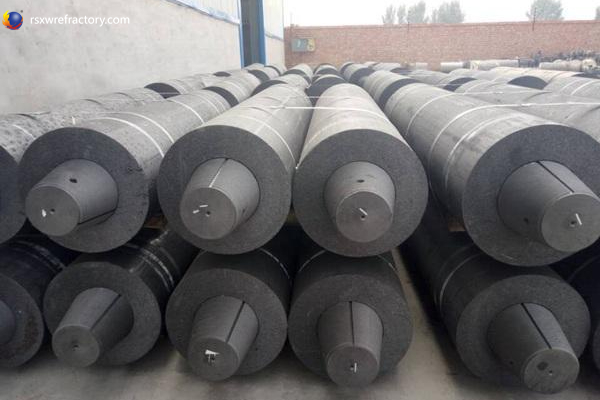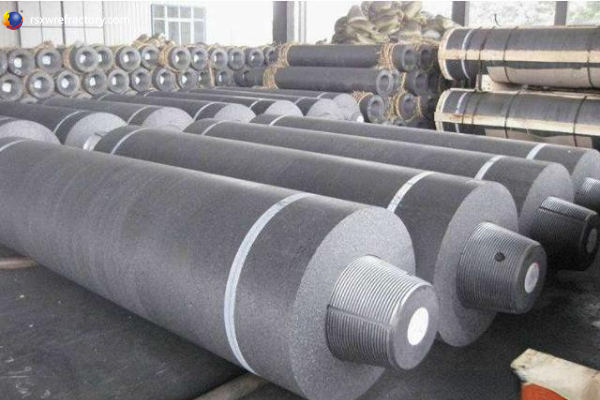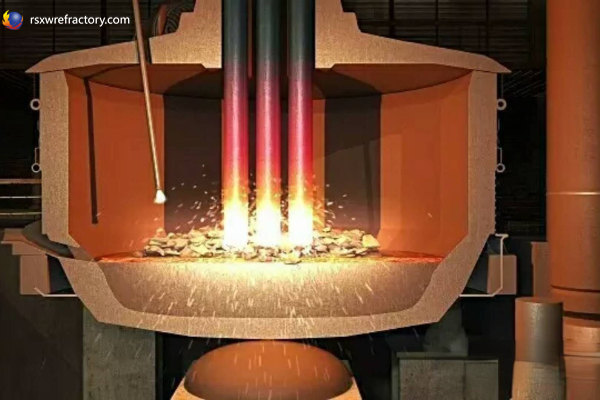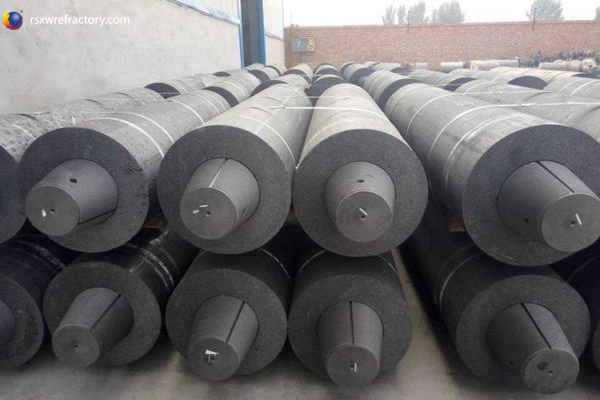Arc furnace electrodes are important high-temperature conductive material, widely used in arc furnace steelmaking, silicon production, and other industries. According to the manufacturing process and application requirements, graphite electrodes can be divided into three categories: ordinary power graphite electrodes, high-power graphite electrodes, and ultra-high power graphite electrodes. Each type of electrode has different performance and usage scenarios and is suitable for specific applications.

Classification of graphite electrodes
- Ordinary power graphite electrode
Graphite electrodes with a current density lower than 17A/cm2 are allowed to be used, mainly used in ordinary power electric furnaces for steelmaking, silicon smelting, yellow phosphorus smelting, etc.
- High-power graphite electrode
Graphite electrodes with a current density of 18~25A/cm2 are allowed to be used, mainly used in high-power electric arc furnaces for steelmaking.
- Ultra-high power graphite electrode
Graphite electrodes with a current density greater than 25A/cm2 are allowed to be used. Mainly used in ultra-high power steelmaking electric arc furnaces.

Packaging of graphite electrodes for transportation
The main function of packaging: to protect the electrode from damage during storage and transportation, especially to protect the threaded part from damage.
- Separate packaging: The electrode and the connector are packed and shipped separately.
- Connected type: One end of the electrode has been connected with a connector before being packed and shipped.

Transportation and storage of arc furnace electrodes
- When lifting or reversing the electrode, be careful to prevent the electrode from slipping and damaging it due to the electrode tilting.
- To ensure the electrode end surface and electrode thread are in good condition, please do not directly use iron hooks to hang the electrode on both ends.
- When loading and unloading the joint box, be gentle to prevent the joint from being bumped and causing thread damage.
- Please do not stack the electrodes and joints directly on the ground. Put them on wooden squares or iron racks to prevent the electrodes from being damaged or sticking to the soil. Do not remove the packaging of the electrodes and joints that are not used temporarily to prevent dust and debris from falling on the threads or electrode holes.
- The electrodes should be placed neatly in the warehouse, and the two sides of the electrode stack should be padded to prevent the stack from slipping. The stacking height of the electrode is generally not more than 2 meters.
- The stored electrodes should be protected from rain and moisture. The damp electrodes should be dried before use to prevent cracks and increased oxidation during steelmaking.
- Do not store the electrode joints near high temperatures to prevent the joint plugs from melting due to excessive temperatures.
Preparation before connecting arc furnace electrodes

- Remove the protective cover of the new electrode hole and check whether the thread inside the electrode hole is complete. If the thread is incomplete, contact the after-sales service technician, who will determine whether the electrode can be used; and check whether the hole is clean. If it is not clean, clean it before use.
- Screw the electrode hanger into the electrode hole at one end and put a cushion under the other end of the electrode to avoid damaging the electrode joint.
- Use compressed air to blow away dust and debris on the surface and hole of the electrode to be connected, and then blow away dust and debris on the surface and joint of the new electrode; if the compressed air cannot blow the electrode surface clean, clean it with a brush.
 Rongsheng Group
Rongsheng Group

WeChat
Matawai te Waehere QR me te wechat